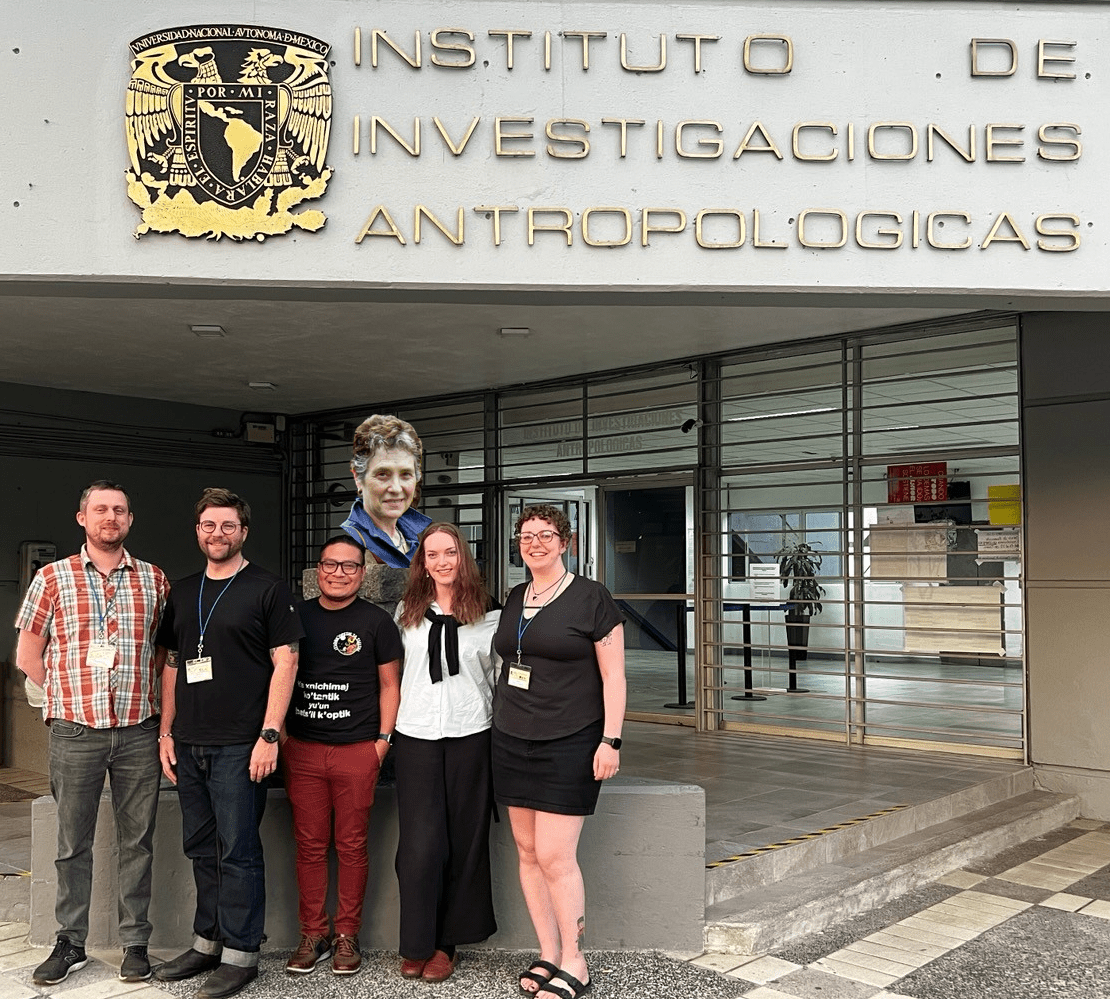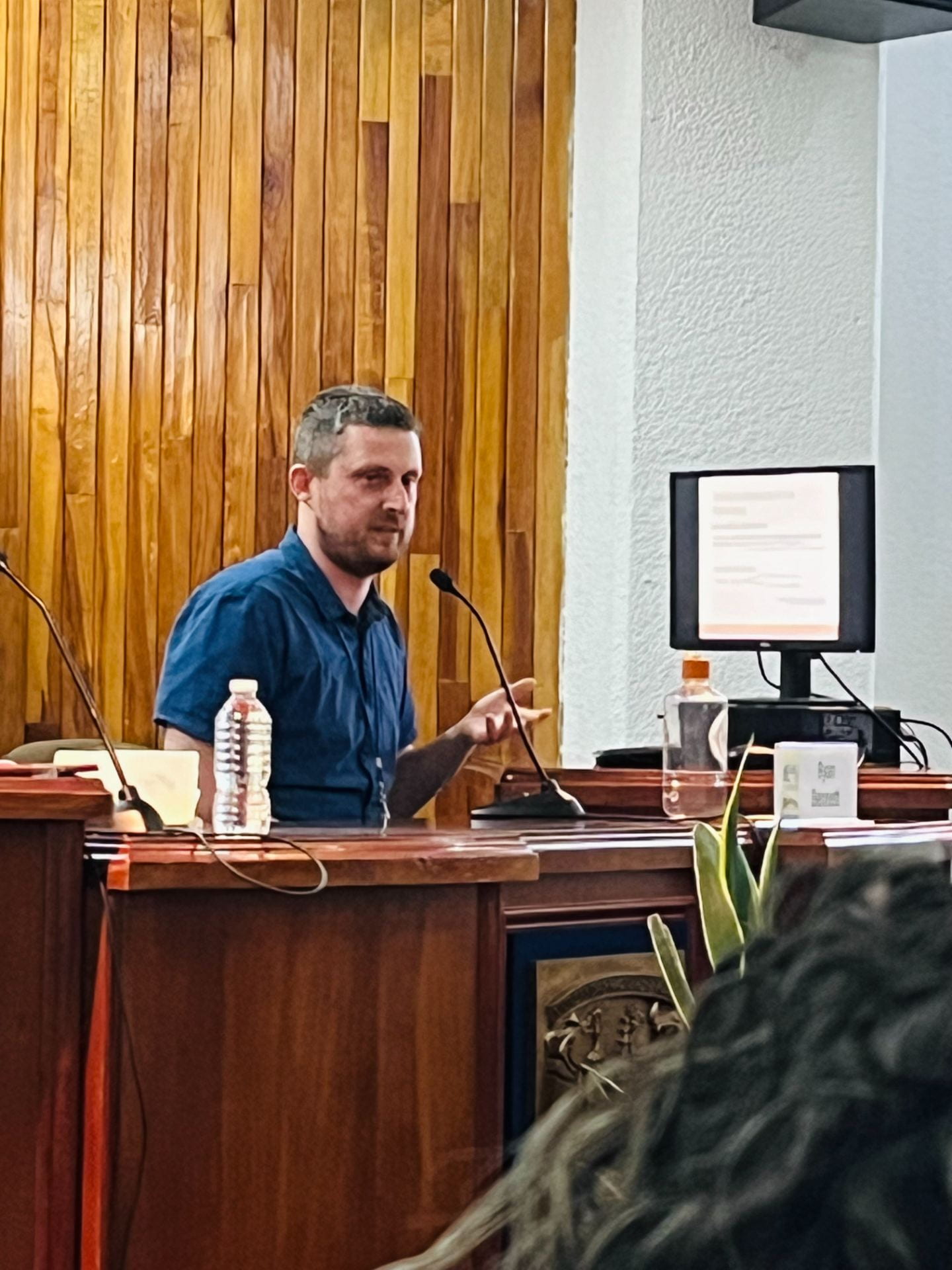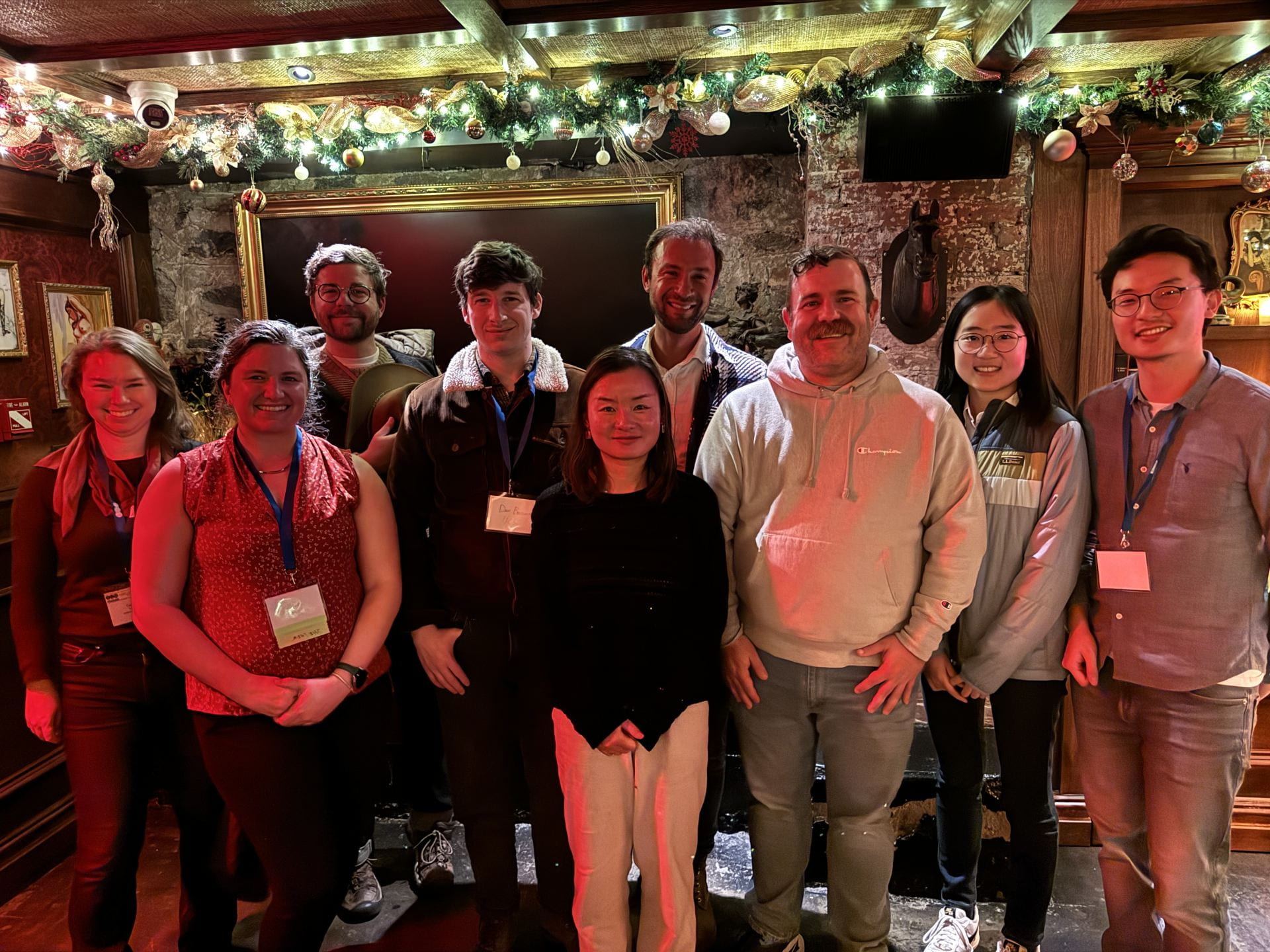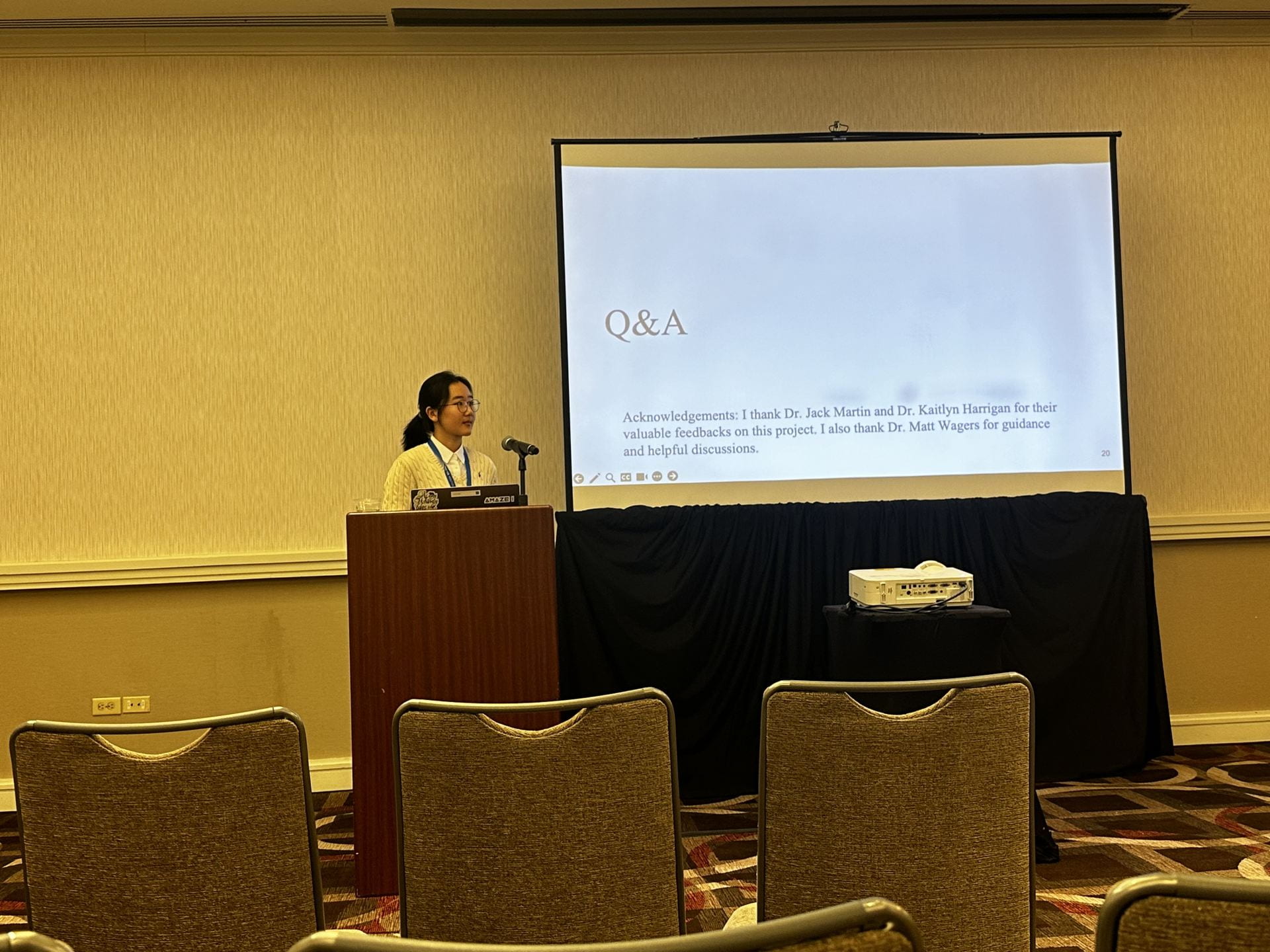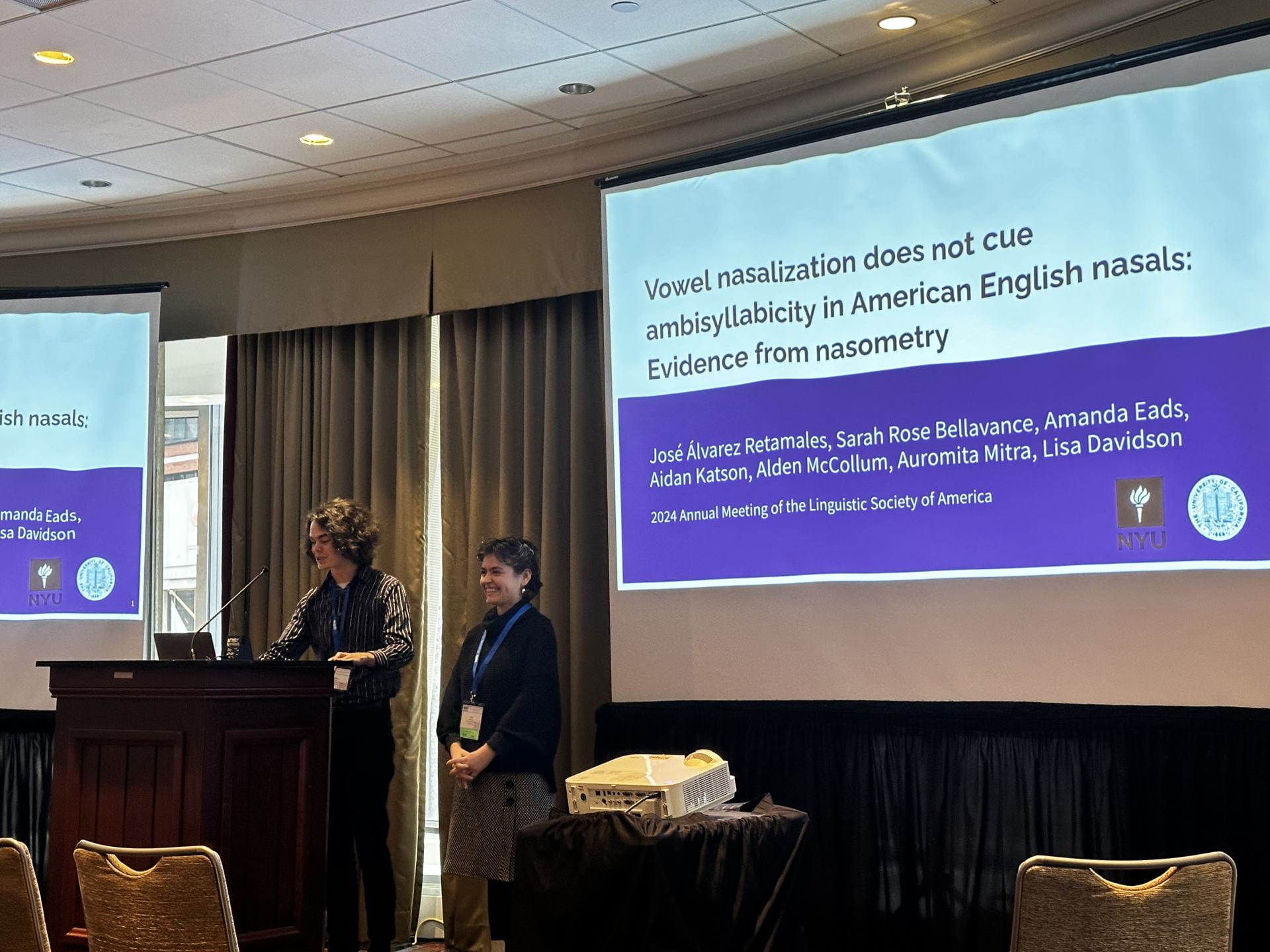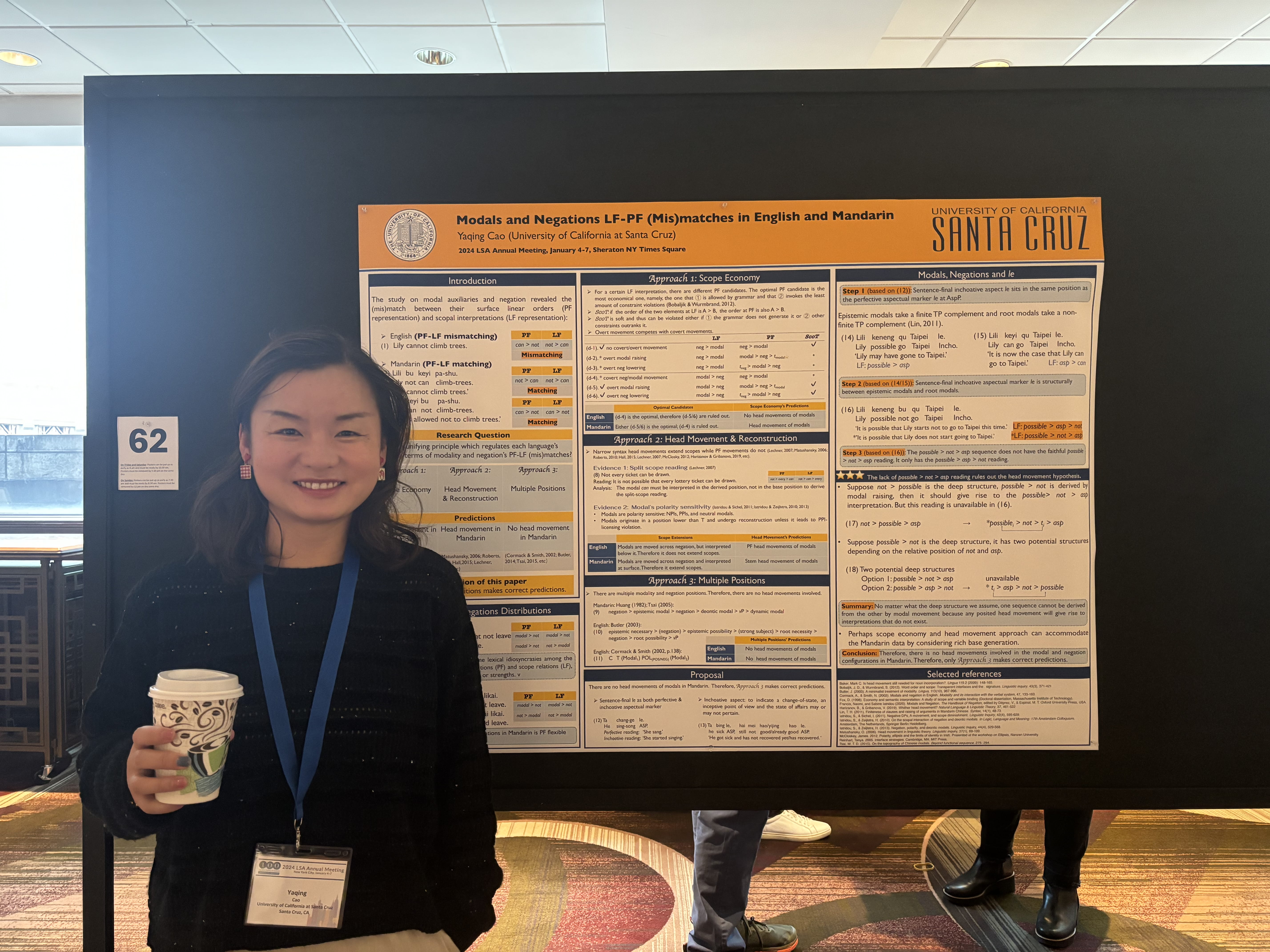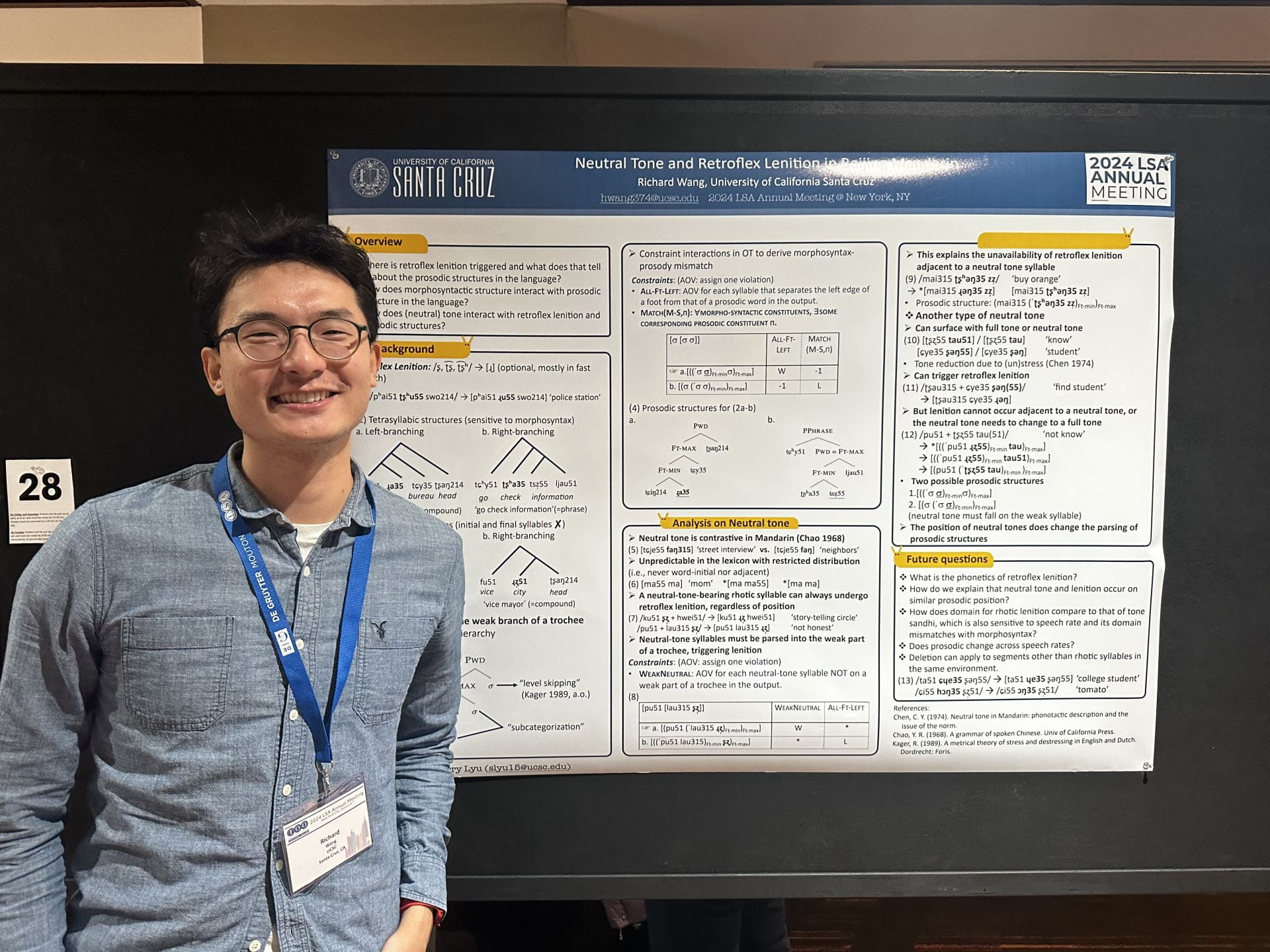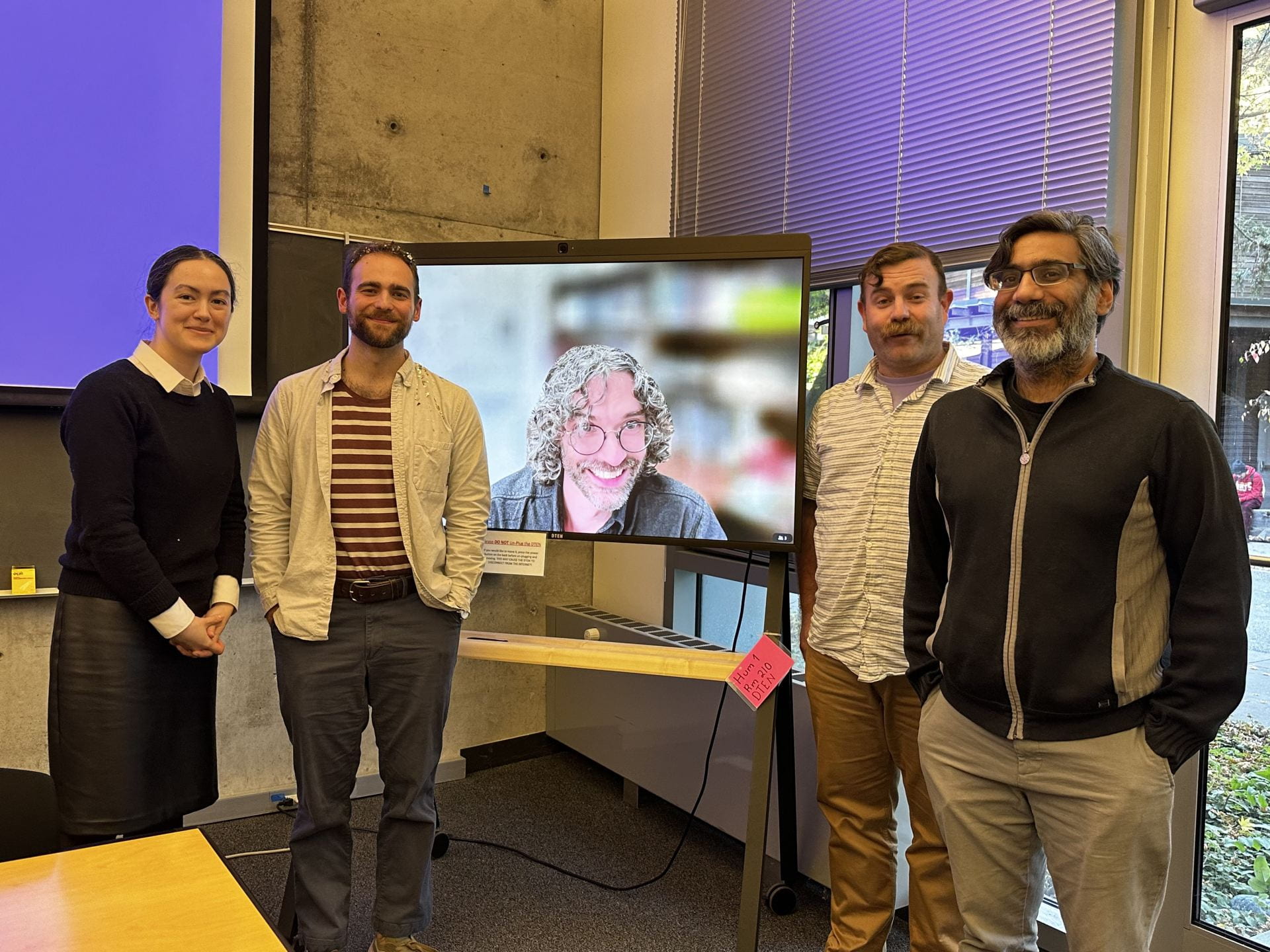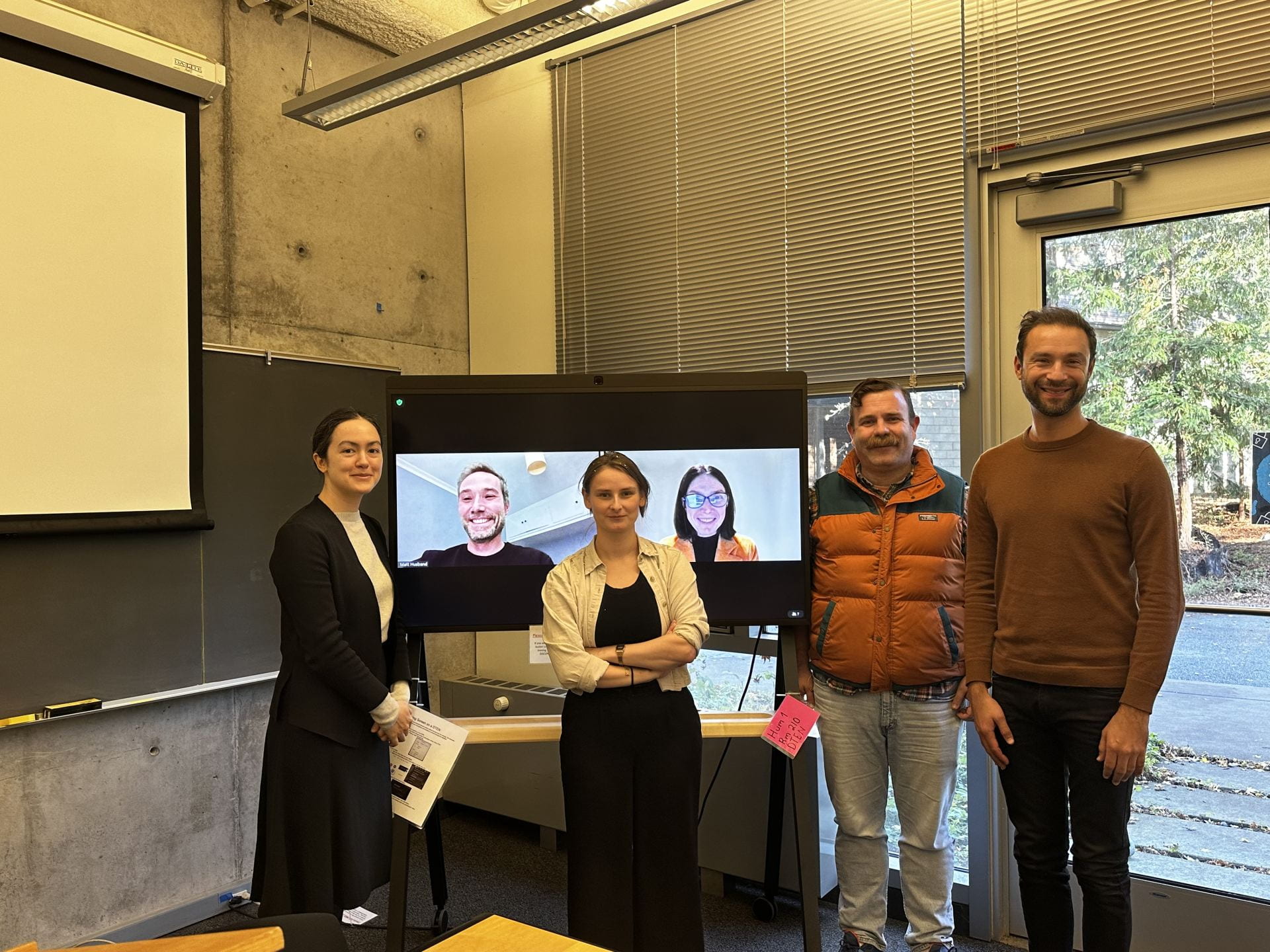Recently, two slugs successfully defended their dissertations:
Language comprehension requires a complex series of decisions under uncertainty. This is especially obvious when one string may have multiple different interpretations, whether due to lexical ambiguity, or the potential for an inference beyond literal content. This dissertation profiles how the human system for language comprehension times those decisions, specifically when and why it sometimes postpones them. Evidence comes from nine reading experiments in English probing variation across a range of different types of uncertain meaning (homonymy and polysemy, predicate distributivity, scalar implicatures from some, and causal inferences from discourse coherence) and across two tasks (self-paced-reading and the Maze task of Forster et al., 2009). I highlight two key patterns. First, some decisions are delayed in normal reading, but occur immediately when a rapid decision would be more useful; I conclude that decisions to postpone are flexible and sensitive to a comprehender’s goals. Second, possible pragmatic inferences rapidly affect comprehension, but do not receive any decisive commitment until much later; I conclude that comprehenders may develop expectations gradiently based on multiple possible interpretations before they make a firm decision. Throughout the dissertation, I explore how these and related facts might be explained as a consequence of the ways humans attempt to rationally allocate cognitive resources under uncertainty.
Onto the next chapter, Jack will be working in Vera Demberg’s group in the Department of Language Science and Technology at Saarland University in the southwestern corner of Germany, gathering and modeling data on individual differences in pragmatic comprehension as part of the ERC grant “Individualized Interaction in Discourse”.
Morwenna‘s dissertation broadly aims to show how existing evidence regarding the on-line processing of focus can be brought more in line with an alternative-based understanding of focus as proposed in theoretical semantics, without losing sight of the way general comprehension pressures may shape its interpretation. Using a series of reading tasks, the dissertation shows that comprehenders arrive at a final interpretation of a focus-marked sentence by combining multiple sources of evidence, including lexical, conceptual and world-knowledge, as well as abstract and fine-grained linguistic representations that guide the incremental interpretation of focus independently from such general knowledge. It argues that the comprehension of foci is generally costly because the comprehension of focus involves the construction of an alternative set to a focus, and that comprehenders rapidly revisit semantic representations of the discourse context to do so. This view on focus comprehension then also accounts for the fact that previous results on the reading of foci have been inconsistent, because it allows us to outline more precisely what the contextual factors are that modulate the comprehension of focus and that have so far not been controlled for.
In February 2024, Morwenna will start as a postdoctoral researcher at the University of Osnabrück, where she will be working on the incremental comprehension of scalar items, with the goal to better understand the connection between the cognitive and formal mechanisms involved in the interpretation of focus and scalar implicature.
Many congrats, Dr. Duff and Dr. Hoeks!
